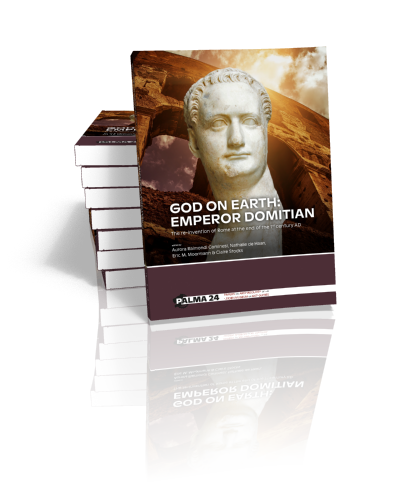Dr. Nathalie de Haan
Nathalie de Haan is senior lecturer in Ancient History at Radboud University (Nijmegen, The Netherlands). She published on Roman baths and bathing culture, domestic architecture, archaeology in Fascist Italy, and contributed with various publications to the field of Reception Studies, such as the recent volume Framing Classical Reception Studies, Leiden 2020, co-edited with Maarten De Pourcq and David Rijser. She is the author of Römische Privatbäder. Entwicklung, Verbreitung, Struktur und sozialer Status, Frankfurt am Main 2010. With Kurt Wallat she conducted research and excavations in the Central Baths of Pompeii (monograph forthcoming). Her current research interests include the multifaceted role of archaeology, heritage and the Classics in Italy in the 19th and 20th centuries.
—
Nathalie de Haan is sinds 2006 als universitair docent Oude geschiedenis verbonden aan de Radboud Universiteit Nijmegen. Daarvoor was zij als archeoloog werkzaam voor het Koninklijk Nederlands Instituut in Rome. Zij doet onderzoek naar Romeinse bad- en wooncultuur en publiceerde eerder over privébaden en watermanagement. Momenteel rondt zij een project af over de bouwgeschiedenis van de Centrale Thermen in Pompeii, een openbaar badhuis dat ten tijde van de uitbarsting van de Vesuvius nog in aanbouw was. Haar andere onderzoekslijn betreft de geschiedenis van de klassieke archeologie en oudheidkunde in Italië in de negentiende en twintigste eeuw.
Books by Nathalie de Haan
God op Aarde. Keizer Domitianus
Nathalie de Haan & Eric M. Moormann | 2021
Vijftien jaar was Domitianus als keizer van Rome aan de macht (81-96). Na de onverwachte dood van zijn oudere broer Titus, die slechts twee jaar regeerde, was hij de logische troonopvolger. Domitianus zette op veel…
God on Earth: Emperor Domitian
The re-invention of Rome at the end of the 1st century AD
Edited by Aurora Raimondi Cominesi, Nathalie de Haan, Eric M. Moormann & Claire Stocks | 2021
In life, the emperor Domitian (81-96 CE) marketed himself as a god; after his assassination he was condemned to be forgotten. Nonetheless he oversaw a literary, cultural, and monumental revival on a scale not witnessed…







